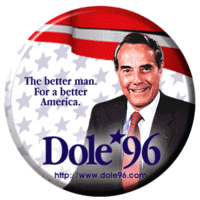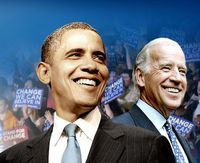
The big change took place in the law, not the technology. The Bush people managed to keep Bill Bradley's campaign with linking to friendly web sites in a web ring by complaining to the FEC through lawyer Ben Ginsberg. But that faded later in the decade, when it became clear that Web sites run by third parties, and web comments made by people outside the campaign, were free speech.
Meanwhile the Dean campaign of 2004 failed to "scale the intimacy" of its blog when everyone rushed to the rail, resulting in an orange-hatted mess in Iowa. One result was that the Democratic clubhouse moved to the Web site of Markos "Kos" Moulitsas, who had recommended the switch from a blogging to a community network service (CNS) platform.

What's sad about the 2012 campaign, so far, is how little the state of the art has changed. There is an assumption now that candidates must personally use Twitter and Facebook, but no one knows you're a dog online, so staffers can do that just as well.
The media is focusing on the wrong online subject with their obsession about Twitter and Facebook. They think online media is like the TV media, that it's all about messaging, what you say to people that gets them excited. It's not. The Internet is not TV. As I've been writing for almost 20 years now, the Internet is a medium that can handle the entire marketing process — from prospecting through customer service — and those who understand that have an advantage.
The big changes have come from within government, not from campaigns. Efforts by Obama staffers to open government documents to online access and debate, and to open source government software, have been matched by Republican efforts to get the data out there. All that's great.
But what matters most isn't what goes out, but what comes in, and how that is handled. As the Dean campaign showed people like to think they're part of the campaign, and online tools let them do that. But when you use a top-down approach against bottom-up data there's a disconnect, which people can easily see, and disillusionment can set in very early.
Because there is an incumbent here, as in 2004, the "online excitement" is going to be on the other side for the next year. That is, look to Republican candidates' online activities for advances in the state-of-the-art. But don't focus on the top-line in any case. Twitter isn't the campaign. Scaled services are the campaign. The aim is true interaction, knowledge of the grassroots, constant contact, party-building.
In that, it's possible you're in for some surprises.











I agree with most of your points, but a few need to be discussed further, I will hold a small talk with my partners and maybe I will look for you some suggestion soon.
I agree with most of your points, but a few need to be discussed further, I will hold a small talk with my partners and maybe I will look for you some suggestion soon.